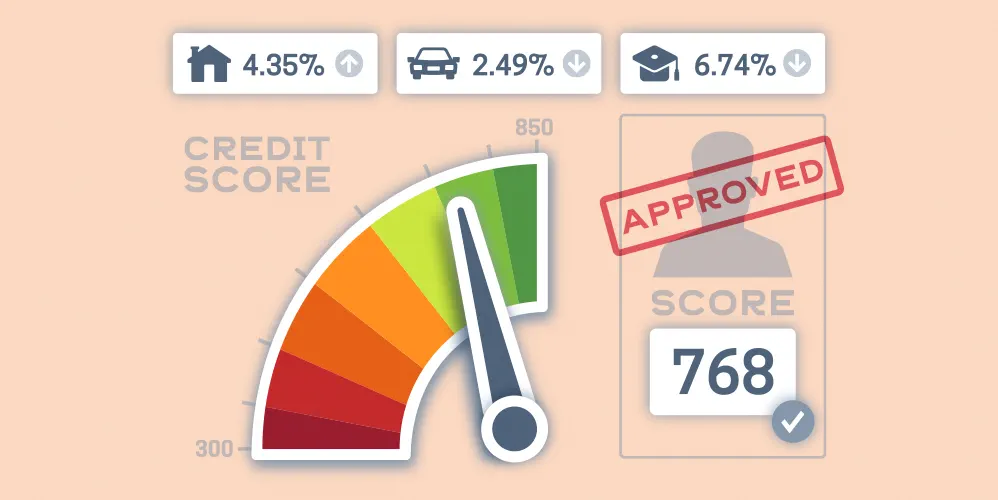
How to Buy a Mobile Phone on EMI Using a Debit Card
28 Jan 2020

Did you know that it is possible to buy a mobile phone on EMI? Yes. It’s possible. All you need is a pre-approved customer to avail ‘On The Fly Debit Card EMI’ by Bank of Baroda, and the smartphone of your choice can be yours.
Buying a phone can be a costly affair these days. Some smartphones are expensive and we often have to end up saving to make the purchase or delay our purchase until we have sufficient funds. But now, with EMI offers on debit card, buying electronic goods and gadgets is easier than ever.
So, what are you waiting for? Go ahead and buy the smartphone on EMI using your Bank of Baroda debit card.
How does this process work?
Buying a smartphone on EMI using a debit card is simple and hassle-free process. Here’s how you can go about it
- Debit Card EMI is live on 2 lakh+ POS devices of Pine Labs on reputed merchant outlet to buy the smartphone of your choice.
- Choose your smartphone and proceed to make the payment using Bank Of Baroda debit card.
- Select the EMI tenure between 3 months to 18 months.
- Proceed to complete the payment.
- The bank will process the conversion of your payment into regular EMIs
- Your transaction is complete.
Features & Advantages
Buying your dream smartphone using Debit Card EMI is now easy, convenient and comes with a host of features. Check the list below to know more
- Easy, accessible and convenient to use
- Zero processing fees
- No paperwork
- Transactions up to Rs. 50,000 can be converted into easy EMIs
- Users have access to over 100 brands, across 2 Lakh merchant outlets
- Cashback Upto 16% is available on Brand EMI transactions
- Rate of interest applicable is 16% p.a.
EMI by debit cards is an easy, convenient and affordable solution for buying high-value products, especially when you’re on a budget.
As more people make use of this facility to pay for smartphones and other electronic gadgets, EMI on debit card is rapidly evolving for affordability solution.
Popular Articles
Guide to Getting Agriculture Loan: Application, Eligibility & Required Documents
Related Articles










Guide to Getting Agriculture Loan: Application, Eligibility & Required Documents
-
Disclaimer
The contents of this article/infographic/picture/video are meant solely for information purposes and do not necessarily reflect the views of Bank of Baroda. The contents are generic in nature and for informational purposes only. It is not a substitute for specific advice in your own circumstances. Bank of Baroda and/ or its Affiliates and its subsidiaries make no representation as to the accuracy; completeness or reliability of any information contained herein or otherwise provided and hereby disclaim any liability with regard to the same. The information is subject to updation, completion, revision, verification and amendment and the same may change materially. The information is not intended for distribution or use by any person in any jurisdiction where such distribution or use would be contrary to law or regulation or would subject Bank of Baroda or its affiliates to any licensing or registration requirements. Bank of Baroda shall not be responsible for any direct/indirect loss or liability incurred by the reader for taking any financial decisions based on the contents and information mentioned. Please consult your financial advisor before making any financial decision.
How to buy a house in India? All you need to know.
Buying a house is a dream for a many people in India. However, the process to buy a house is not as simple as looking it up and buying it instantly. There are a lot of factors to consider and a fair bit of due diligence is required on the part of the buyer before the house is bought.
The process of buying a house can be condensed into these steps:
Figure out how much you can afford:
The first step on how to buy a house in India is to decide how much you can afford. Housing loans are extremely popular and easily available which means you can also factor in a loan value while deciding how much you can pay for buying a house. It is also important to take a look at your household budget while deciding this. You need to have enough funds left over for making investments and meeting household expenses since banks auto debit the EMI from your savings account.
Decide the location:
The price of the flat depends a lot on its location and the proximity to major roadways or an airport. Upcoming suburbs outside a major metropolitan city will be cheaper than buying a flat within city limits. However, you must factor in the time taken to commute from your place of work to your residence.
Check the resale values:
Checking the resale value of the flat is extremely important. This depends on a few things such as the builder’s reputation, the locality etc. It is easy to find resale values on different property portals. This especially helps in case you want to move in a few years or are investing for the purpose of investment.
Check your loan eligibility:
Real estate is extremely expensive in India and not many buyers can afford to buy it outright with their savings. This is where a home loan comes in. Most lenders have a home loan eligibility calculator on their website where you can check for your loan eligibility. The loan eligibility does not translate into the final loan amount since that depends on the actual property itself. However, these calculators are a good indicator of how much loan you can expect to get if you apply for it.
Registration and stamp duty:
Registration and stamp duty are costs that are paid over and above the purchase price of the house. These costs differ from state to state in India and each state has a formula for calculating them. It is important to factor these costs since this adds to the expense.
Agent:
You must decide whether to buy a house through an agent or directly. Agents prove to be helpful while finding buyers and sellers for flats, especially resale flats. However, they also charge a commission from both parties for the sale.
Property type:
You can either buy a flat in a new construction or buy a resale property. New constructions also have a risk of permissions attached to them. However, new constructions also come with more amenities.
Rental value of property:
If you’re looking to rent out the property, you need to calculate the amount charged as rentals from similar flats in the area. This will help you estimate your monthly earnings. It is better to buy a flat in an area that is conveniently located since such places will always have a demand for rentals.
Once you factor in all these points, you can then add up the total value of the house. How much money to buy a house in India depends majorly on the location of the flat and the city or town, but after considering these points, you can get a fair idea.
How to Claim Car Loan Tax Exemption ? | Bank of Baroda
Introduction:
Cars are considered a luxury product in India and many people avail loans to purchase their dream cars. But did you know that you can avail car loan tax benefit?
Yes, you read that right. Much like the education and home loan, car loan benefits in income tax. While cars purchased for personal use may not have car loan tax exemption, if you are a self-employed professional or business owner using the car for business purposes, you can claim exemptions. Loans on personal use cars are not eligible for tax exemption as cars are considered luxury products.
However, if you are a businessman/ woman and have taken a loan to buy a car for your business, you can claim the interest you pay as business expenses. The interest you pay in a year towards your car loan can be deducted from your taxable income. Apart from the interest deduction from taxable income, you are also eligible to claim tax benefits on the depreciation of your vehicle.
How to claim car loan benefits in income tax
In simple terms, if you are a business or are self-employed and you take a loan to buy a car for your business, you are eligible for tax deductions. How does tax rebate on car loan work?
For example, you own a business and have taken a loan for a car for your business. For this, you take a loan of Rs15 lakh at 12% for a year. Now let us assume your total taxable income, from your business, is Rs 25 lakh. You can then deduct 12% of Rs 15 lakh (Rs1.8 lakh) from your taxable income while filing your tax returns.
So when you are claiming tax rebate on car loan, deduct the interest you have paid towards your car loan in that year from your taxable income. The interest paid can be added as a business expenditure.
There are other ways to save taxes on car purchase, even if you have not sought a loan to buy the car. You can do so by showing your car as a depreciating asset for your business. You can add the depreciation as a business expense, too. The upper limit for depreciation is set at 15 % in a year.
Conclusion
For salaried individuals buying car for personal use, there is no car loan tax benefit. However, self-employed individuals or businesses can claim tax deductions for loan on car used for business purposes. While availing these tax benefits be sure that the car is being used for legitimate business purposes.

